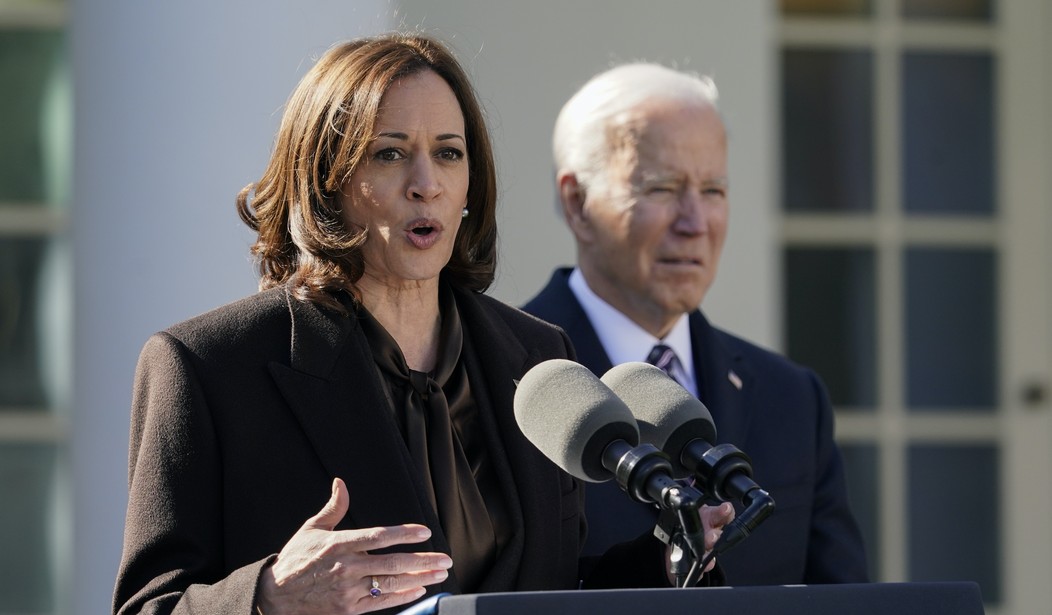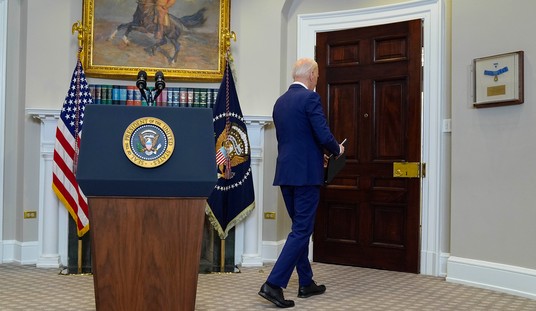Could a president who won the nomination largely off the support of black voters have a White House that’s hostile to black staffers? That’s certainly what Politico suggests, and it’s also what the numbers suggest — but may not actually prove. Twenty-one black staffers have left the administration since Joe Biden’s inauguration sixteen months ago, creating what one remaining staffer calls “Blaxit”:
At least 21 Black staffers have left the White House since late last year or are planning to leave soon. Some of those who remain say it’s no wonder why: They describe a work environment with little support from their superiors and fewer chances for promotion.
The departures have been so pronounced that, according to one current and one former White House official, some Black aides have adopted a term for them: “Blaxit.” …
“I have heard about an exodus of Black staffers from the White House — ‘Blaxit’ — and I am concerned,” said Spencer Overton, president of the Joint Center for Political and Economic Studies, which tracks government staff diversity numbers. “Black voters accounted for 22 percent of President Biden’s voters in November 2020. It is essential that Black staffers are not only recruited to serve in senior, mid-level and junior White House positions, but are also included in major policy and personnel decisions and have opportunities for advancement.”
A White House official pushed back on those concerns, saying that around 14 percent of current White House staffers identify as Black — in line with national proportions. The official added that the number is expected to increase as more Black staffers are brought on board and that 15 percent of Black staffers have been promoted in the last year.
First, it’s important to define terms. Usually, “White House” refers to the president and his staff, not necessarily the VP. Politico merges the two to get to the total staff departures, but the exit from Harris’ office likely has less to do with race-based hostility than it does Harris’ incompetence. Politico lists five high-profile Harris departures at the very beginning of its count of “Blaxit” exits: Symone Sanders, Tina Flournoy, Ashely Etienne, Vincent Evans, and Cedric Richmond.
However, none of these five appeared on the White House’s employee list as of July 1, 2021. The White House is required to publish a report of their employees and salaries each year. Those employees worked for Harris separately than the White House.
What about the other 16 staffers? That might seem significant, except that the White House employs 660 people (a handful are “employed” with no salary but still listed). That amounts to a turnover of 2.4% overall. If 14% of the current staff “identify as Black,” as Politico reports, then that would calculate to 93 staffers. A departure of 16 over as many months would be significant but hardly a “Blaxit” or an “exodus,” or even a “Blaxodus,” if you will. One piece missing from this report is the overall turnover rate, which would give us a look as to whether the 17% turnover rate among black staffers is statistically significant. It might just be that White House employees in general are looking for greener pastures for reasons unrelated to race.
The nature of the departures matter, too. Politico’s reporting on that doesn’t seem to support the idea of a run for the exits either:
A number of staffers who left, moreover, said it was on good terms. Some departures were for graduate school opportunities. Others went to different cabinet departments. Several said they were leaving because of family matters. Dessources Figures said she wanted to focus on her young children, as did Conley.
Did a tough work environment make it easier to choose to focus on family or return to school? Perhaps, and the same could be said for Cabinet department transfers. It doesn’t appear that all 16 walked off the job, and that a significant number of them still work in the executive branch. That in itself should make us a bit skeptical of the “Blaxit” theme.
That doesn’t mean the work environment is just tough in general, though. Those who remain complain to Politico that they’ve been compartmentalized and blocked from real influence:
Three Black staffers who currently work in the White House — and were granted anonymity because of fear of reprisal — said the exodus has hurt morale, compounding problems that exist elsewhere. They described an operation in which mentorship is hard to come by and opportunity to move up the ranks of a tight-knit operation is exceptionally rare.
“We’re here and we’re doing a lot of work but we’re not decision-makers and there’s no real path towards becoming decision-makers,” said one of the current Black White House officials. “There is no real feedback and there’s no clear path to any kind of promotions.”
That could be a real problem for Biden, if true, and maybe even if it’s not. Perception matters more here, and having anonymous complaints from inside a Democrat administration float up to Politico’s pages offers a strong impression of a problem. Black voters reading this and hearing such rumors are not going to be enthusiastic about turning out for Joe Biden or his party, even if Karine Jean-Pierre is on hand to rebut those claims. It might prompt what Donald Trump tried to promote over his term in office — a “Blexit” of black voters to the GOP.
At least in terms of real numbers, “Blaxit” looks overblown — for the moment. If it continues, then Biden will have another crisis on his hands, another crisis that speaks directly to his leadership and judgment in a demo that Democrats cannot afford to lose in 2022.







Join the conversation as a VIP Member